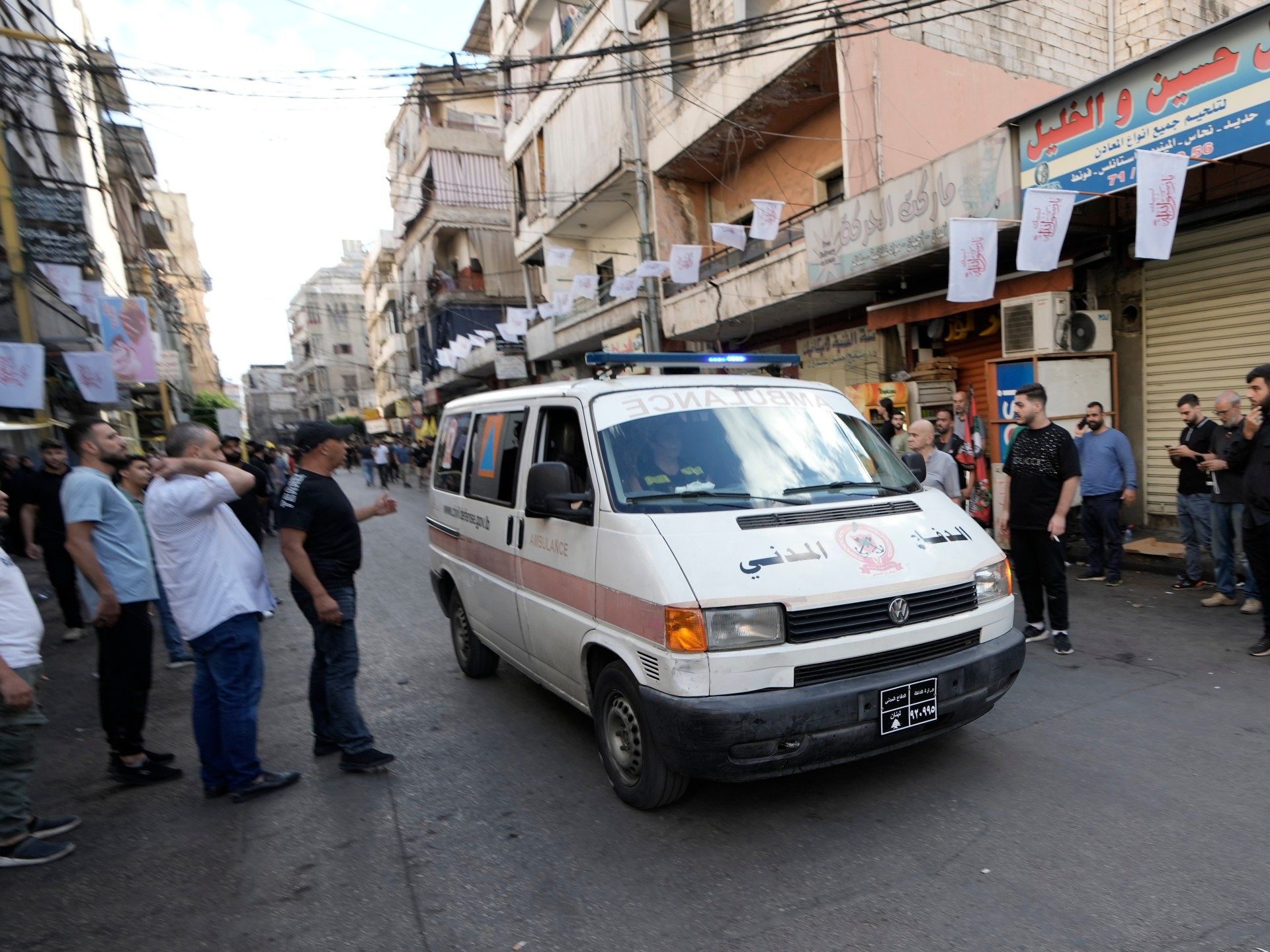A day after thousands of pagers exploded across Lebanon, more explosions involving handheld devices including walkie-talkies, laptops and radios killed at least 14 people and injured 450.
On Tuesday, pagers belonging to Hezbollah members that had been pre-loaded with explosives detonated, killing 12 people and wounding nearly 3,000.
On Wednesday, reports of several simultaneous explosions spread quickly on messaging apps, with people sharing images of exploding walkie-talkies and burning residential buildings. Here's what we know:
Where in Lebanon did the new explosions occur?
Information is still coming in, but on Wednesday afternoon several explosions were reported in the southern suburbs of Beirut, as well as in the southern city of Tyre.
Images posted on social media showed burning vehicles and smoke billowing from a residential area as reports came in of walkie-talkie radios and even solar cells exploding.
Al Jazeera correspondent Ali Hashem witnessed a car explode during a funeral in southern Lebanon, apparently set alight by an explosion from within rather than being hit by a drone, he said.
“There were several explosions in southern Lebanon and in the southern suburbs of Beirut… on walkie-talkies and not on pagers,” he said.
He described chaos in the streets with ambulances racing to pick up the wounded and reports of more explosions spreading panic.
“We are probably witnessing another wave, … really worrying given that yesterday’s incident already overwhelmed the entire health sector,” Hashem added.
What exploded?
There are reports that several different devices have exploded.
These include walkie-talkie radios, mobile phones, laptop computers and even some solar power systems.
Several cars were also reported to have exploded, but it is unclear whether this was caused by the explosion of the car itself or by something inside it.
What are the exploded walkie-talkie radios?
A regular walkie-talkie is a portable two-way radio device that allows people to exchange messages with the walkie-talkie base or other people who have mobile receivers.
They are short-range devices and need to stay close to their base to transmit.
The devices called walkie-talkie radios are apparently the IC-V82, manufactured by the Japanese company ICOM.
The radios have a much longer range than ordinary walkie-talkies and the IC-V82s, according to The Jerusalem Post, are typically used by hobbyists for personal use rather than for commercial or emergency broadcasts.
How to blow up walkie-talkie radios?
Again, the details are still unclear.
Some observers have questioned whether Wednesday's explosions were similar to what happened with the pagers.
They could have been used to infiltrate the supply chain and load the devices with between 1 and 3 grams (0.04 and 0.11 oz) of a powerful explosive.
At least some Hezbollah members appear to believe the explosions are related to batteries.
Several of them quickly pulled out batteries from their radios and threw them away after one exploded during a funeral in a southern Beirut suburb, Reuters news agency reported.
Pagers use radio transmission and reception just like, of course, a radio.
Most of the devices hit appeared to be communication systems, but there were also some reports of other devices exploding, such as solar panels. At least one of those explosions injured a young girl.
Hezbollah and the Lebanese government have blamed Israel for the blasts. Israel has not commented.

Why would Israel carry out the explosions?
Israel's long-term strategy is unclear, but the strikes mark a notable escalation against Hezbollah and Lebanon.
The blasts come after months of mostly low-intensity conflict between Israel and Hezbollah and have revived fears of an all-out war.
Israeli Defense Minister Yoav Gallant further fueled fears Wednesday night, saying the Israeli military would divert forces and resources from its nearly year-long war in Gaza to the north, where Israel borders Lebanon.
How big a blow is this for Hezbollah?
The attacks constituted a major security breach for Hezbollah as well as a potent tool of psychological warfare, and some analysts question whether they have damaged the group's image domestically.
Hezbollah's communications apparatus appeared to remain operational, according to political and security analyst Elijah Magnier, who said after the first attack that thousands of older pagers were not hit and that the group had secure alternative communications in place.
As panic set in, Lebanese residents began throwing away their devices or taking them to stores for inspection.
At the US hospital, the Lebanese army used a controlled detonation to neutralise an apparently unexploded device discovered by medical staff in an ambulance.
On Wednesday, before the latest explosions, Hezbollah said it had targeted Israeli artillery positions with rockets in the first attack on Israel since the initial strikes, according to Reuters.
What's next?
“This Israeli attack is considered a terrorist attack in Lebanon because it has fuelled terror,” said Al Jazeera correspondent Imran Khan from Beirut. “People are scared.”
Magnier said Israel had successfully “created confusion in Hezbollah and in society.”
He pointed to the proliferation of reports and the climate of chaos as a sign that Israel's strategy of waiting more than 24 hours before second detonations had been successful.
“This is exactly Israel’s goal: to create such confusion and perhaps prepare for a phase three,” he said.
“We have to wait and see what they are preparing next because this is not the end.”













